- News
- Reviews
- Bikes
- Accessories
- Accessories - misc
- Computer mounts
- Bags
- Bar ends
- Bike bags & cases
- Bottle cages
- Bottles
- Cameras
- Car racks
- Child seats
- Computers
- Glasses
- GPS units
- Helmets
- Lights - front
- Lights - rear
- Lights - sets
- Locks
- Mirrors
- Mudguards
- Racks
- Pumps & CO2 inflators
- Puncture kits
- Reflectives
- Smart watches
- Stands and racks
- Trailers
- Clothing
- Components
- Bar tape & grips
- Bottom brackets
- Brake & gear cables
- Brake & STI levers
- Brake pads & spares
- Brakes
- Cassettes & freewheels
- Chains
- Chainsets & chainrings
- Derailleurs - front
- Derailleurs - rear
- Forks
- Gear levers & shifters
- Groupsets
- Handlebars & extensions
- Headsets
- Hubs
- Inner tubes
- Pedals
- Quick releases & skewers
- Saddles
- Seatposts
- Stems
- Wheels
- Tyres
- Health, fitness and nutrition
- Tools and workshop
- Miscellaneous
- Cross country mountain bikes
- Tubeless valves
- Buyers Guides
- Features
- Forum
- Recommends
- Podcast
feature
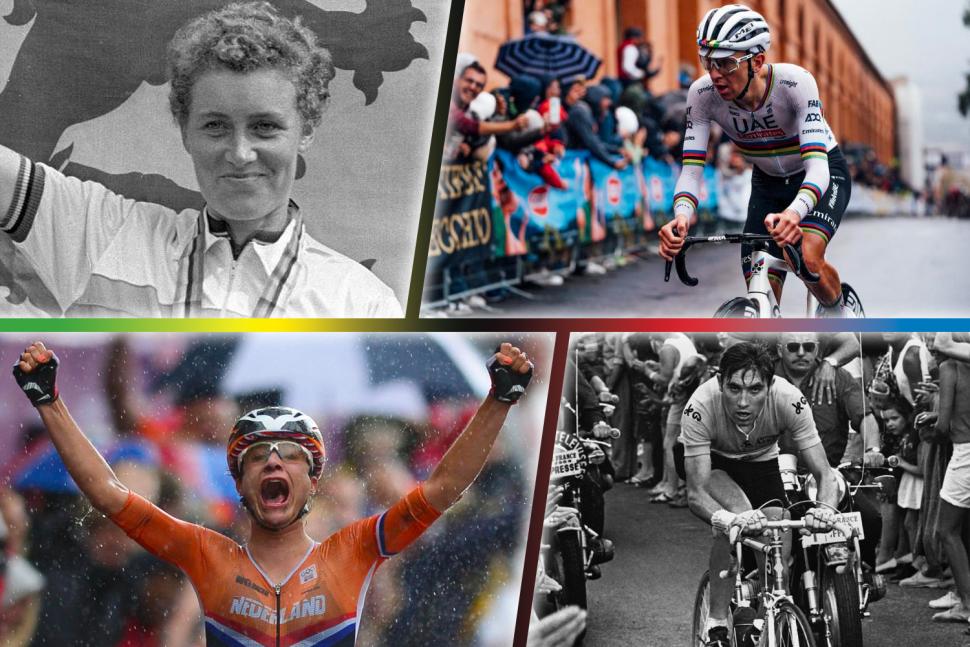 Cycling’s greatest seasons, 2024
Cycling’s greatest seasons, 2024Was Tadej Pogačar’s 2024 the best season ever? We rank cycling’s greatest individual years, from Burton and Coppi to Vos and Pogačar
On the eve of Il Lombardia in October, where he delivered yet another long-range solo destruction of the finest bike riders on the planet, this time resplendent in the rainbow jersey of world champion (just like Tom Simpson back in 1965 – though Simpson never opted for matching white shorts), Tadej Pogačar described his 2024 campaign as the “perfect season”.
And it’s hard to argue with the rampant Slovenian’s assessment of a road season that – futile comparisons between incomparable sporting eras aside – was one for the ages.
The results sheet speaks for itself.
From just 58 race days throughout 2024, Pogačar amassed 25 victories, plus three other jersey classifications that technically don’t count as wins. The last time anyone managed more than 25 wins in a single season was Sean Kelly, forty years ago.
Of cycling’s three grand tours, he won the two most important ones, the Tour de France and the Giro d’Italia, becoming the first male rider since Marco Pantani in 1998 to nab that pink and yellow double. He also won six stages apiece at both races.
(Zac Williams/SWpix.com)
Of the sport’s six most important one-day races – the five monuments plus the world championships – the UAE Team Emirates rider won three: Liège-Bastogne-Liège, Il Lombardia, and the world title in Zurich (clinching only the third male Triple Crown ever), and came third at another, Milan-Sanremo.
He also got his season underway with victory at Strade Bianche, the modern Italian classic closest to competing with the historic monuments for one-day prominence, won two other one-day events, the GP Montréal and the Giro dell’Emilia, and dominated the only week-long stage race he started, the Volta a Catalunya.
> Is Tadej Pogačar the greatest cyclist who’s ever lived?
However, like all the greats – and it’s by no means a stretch to say Pogačar, at 26, reached that heady pantheon a few seasons ago – it’s not just about the results.
In 2024, Tadej Pogačar redefined what it means to win a bike race.
(Zac Williams/SWpix.com)
His grand tour victories ripped up the traditional blueprint for stage racing – which tended to favour conservative, loss-adverse and energy-preserving tactics – and were instead built upon ruthlessly hammering home every little advantage possible, regardless of the GC situation at the time.
Pogačar’s classics campaign, meanwhile, was based on the kind of marauding, long-range epics – and crushing race-winning margins – long thought extinct (at least on the men’s side, anyway, with Annemiek van Vleuten setting that particular template over the past decade in the women’s peloton).
That mesmerising 81km solo in Strade Bianche, the clinical 35km assault at Liège-Bastogne-Liège, the warm-up act in Montréal, all building to a stunning, era-defining 100km crescendo in Zurich, and a fitting, if crushingly inevitable, rainbow-themed coda in Bologna and Como.
(Zac Williams/SWpix.com)
In an age of sports science, zone fours, in-depth nutrition plans, and space-age tech, Pogačar is the romantic’s romantic. And therein lies the appeal, which enables us to forgive – for now – the race-stifling dominance.
The Slovenian may well be the creation of modernity, a tufty-haired Gen Z social media star finetuned in the UAE lab. But he also represents a throwback to when cycling was simpler, when poor roads, fewer gears, and less professionalism meant, sometimes, that just riding your bike bloody hard would suffice.
> Was Tadej Pogačar’s Giro d’Italia victory boring? And does it matter?
The manner in which Pogačar went about his 2024 campaign also seemed to encapsulate, at different moments and in different ways, the various elements that made up some of cycling’s most emblematic figures.
(Zac Williams/SWpix.com)
The ‘win everything in sight’ ethos of Merckx. The audacious long-range escapades of Coppi. The relentless desire to impose his will on a race, exhibited by the likes of Hinault and Armstrong (though the almost always affable Slovenian rarely outwardly displays any of the Texan’s other personality traits, or even those of the belligerent Badger).
Before he was beaten by over three minutes at Il Lombardia, Remco Evenepoel – whose own 2024 results, including an Olympic road and time trial double, another worlds time trial win, and third overall at the Tour, most pros would swap their entire careers for – concluded that his rival’s momentous season “may never be repeated, by him, or by anyone in general”.
Is Remco right? Is Tadej Pogačar’s 2024 a one-off, never to be seen again? And, if the Belgian is right and it is unrepeatable, how does it stack up against cycling’s other anni mirabiles over the years?
(Zac Williams/SWpix.com)
Cycling’s greatest ever seasons
So, with 2024 drawing to a close, and Pogačar and Evenepoel’s comments still ringing in our ears, we decided to revisit our ranking of the top dozen greatest pro cycling seasons of all time, to see where 2024-era Pogi falls.
The list draws from both the men’s and women’s sides throughout the sport’s history, featuring everything from Fausto Coppi’s heroic post-war exploits in the mountains of France and Italy to Marianne Vos’s merciless domination on all terrain (why is it a top 12, I hear you ask? Because I couldn’t decide on a top ten, that’s why).
To avoid the rankings being dominated by people called Eddy, Marianne, and Tadej, we decided to limit each rider to one stupendous season each.
Some famous names, naturally, are missing from the list, largely due to the fact that their biggest wins were evenly spread out over the course of their careers, rather than stuffed into one epic year (the Italian heroes Vincenzo Nibali and Gino Bartali arguably fall into this category) – making the longevity of some of those included all the more impressive.
BettiniPhoto
While others may have exerted dominance during specific parts of the season – think the spectacular springs of Fabian Cancellara in 2010, Tom Boonen in 2006 and 2012, and Lizzie Deignan in 2016 – most of the riders who made the list were on fire all year round, and won across a variety of different terrains, from the narrow lanes of the classics to the majestic mountains of the grand tours.
Before we get to the diamond dozen, honourable mentions must also go to Maître Jacques Anquetil’s stage-race decimating 1963 season, Philippe Gilbert’s Ardennes domination of 2011, and Mark Cavendish’s 2009 season, as well as Nicole Cooke (2006), Greg Van Avermaet (2016), and Freddy Maertens (1977).
So, without further ado, here is road.cc’s ‘definitive’ list of the 12 greatest cycling seasons of all time:
12. Bradley Wiggins, 2012
Highlights: Tour de France (GC and two stages), Olympic Games time trial, Paris-Nice (GC and one stage), Critérium du Dauphiné, Tour de Romandie
Cometh the hour, cometh the Mod. After two frustrating years plagued by bad form and poorly timed crashes, everything finally went right in 2012 for the kid from Kilburn, as he made good on Dave Brailsford’s commitment when he set up Team Sky to deliver a British Tour winner within five years.
Wiggins was peerless in 2012, winning every single major stage race rendezvous on the way to July, including emulating his hero Tom Simpson with overall victory at Paris-Nice, establishing a template – dominate in the TT, defend your lead in the mountains – that served him well on the roads of France (though it wasn’t all robotic and pre-programmed: remember that out-of-nowhere bunch sprint win in Romandie).
By the time the soon-to-be Sir Wiggo drew the raffle numbers in Paris, the sideburn-sporting 32-year-old had captured an Olympic fever-gripped nation’s imagination, and fittingly capped it all off with his fourth gold medal (of a career total of five) at Hampton Court Palace.
His teammate-cum-rival Chris Froome enjoyed similarly dominant seasons after 2012 but, as one journalist put it in the mid-2010s, it all felt at the time – rather unfairly, in retrospect – a bit ‘after the Lord Mayor’s show’ of 2012.
11. Anna van der Breggen, 2018
Highlights: World Championships road race, Strade Bianche, Tour of Flanders, Flèche Wallonne, Liège-Bastogne-Liège, Durango-Durango
Alex Broadway/SWpix.com
It’s rather unfortunate that the enduring image associated with Anna van der Breggen’s sensational 2018 season is that of her compatriot Annemiek van Vleuten bearing down on her on that final agonising ramp to the finish in Le Grand-Bornand.
That year’s mountainous edition of La Course by Le Tour de France perfectly encapsulated the era-defining rivalry between Van der Breggen and Van Vleuten, toe-to-toe, fighting for every inch, miles ahead of the rest. But it does a lousy job of conveying Van der Breggen’s dominance in one-day racing that year.
She may have won the Giro Donne on four occasions during her illustrious career, but 2018 was the apex of AVDB, the classics contender. She won five of the most important one-day races on the women’s calendar (including her by then obligatory triumph on Flèche’s Mur de Huy) and capped it all off with a devastating 40km solo ride to take her first rainbow jersey.
On a tough, hilly course in Innsbruck, a ruthless Van der Breggen finished a whopping 3:42 ahead of second-place Amanda Spratt – and over seven minutes clear of Van Vleuten.
10. Jeannie Longo, 1987
Highlights: Tour de France Féminin (GC and four stages), World Championship road race, French national road race, Postgiro Féminin (GC and four stages), Coors Classic (GC and four stages)
Able to count Maria Canins and Marianne Vos among her rivals, Frenchwoman Jeannie Longo is another pioneering female rider famed for her longevity and astounding palmares.
1987 – when Longo was only 28 with another quarter of a century still left in the bank – reads like a career highlight reel. Four stage wins and the first of three consecutive overall victories at the Tour de France Féminin (finally deposing two-time champion Canins) were backed up by GC successes at the Norwegian Postgiro Féminin and the prestigious Coors Classic. Oh, and the third of her five career world road race championships and the ninth of 20 – yes, 20 – French national titles.
Of course, this being Longo, 1987 wasn’t without its controversy. After winning the Coors Classic, along with four stages, she tested positive for ephedrine following a 3km world record attempt in Colorado Springs, and promptly served a month-long ban.
There’s no such thing as the perfect year, especially in cycling (and if we were to disqualify any rider who’s been linked to doping from this list, it would be considerably barer).
9. Bernard Hinault, 1979
Highlights: Tour de France (GC and seven stages), Tour of Lombardy, Flèche Wallonne, Dauphiné Libéré (GC and four stages), GP des Nations
Le Coq Sportif
Bernard Hinault’s character is often distilled into certain fleeting, iconic moments: the escape from a ravine at the 1977 Dauphiné, the flying fist towards the striking shipyard workers at Paris-Nice, the Badger’s bloodied face in Saint-Étienne at the ’85 Tour.
But nothing, perhaps, sums up the five-time yellow jersey winner’s relentless drive as much as his shock stage win in Paris at the end of the 1979 edition of the Grande Boucle.
The then-24-year-old Breton was at the height of his powers following his maiden Tour triumph the year before. He had completely dominated the 1979 race, and by the final stage into Paris had secured an unassailable three-minute advantage over Joop Zoetemelk (who would win the following year’s Tour after Hinault’s tendonitis-related abandon while in the yellow jersey).
The final stage on the Champs-Élysées was, then as it is now, the traditional playground of the sprinters. And, in any case, the race was a bygone conclusion. So, what did Hinault do? Well, he simply decided to rip up the script and shove it in the faces of the fast men, by attacking with Zoetemelk over the cobbles and storming to yet another stage victory.
In his book Étape, the late Richard Moore writes: ‘To win there, in the yellow jersey, showed more than strength and speed. It showed panache and defiance. It was a two-fingered salute.’
As Moore acknowledged, Hinault had already won the Tour, along with six stages. Taking a seventh, in yellow, on the Champs-Élysées no less, was ‘completely unnecessary’.
But it was also peak Hinault.
8. Beryl Burton, 1967
Highlights: World championship road race, British national road race, British 12-hour time trial record, British Best All-Rounder (male and female)
Dutch National Archives
‘Liquorice allsort, Mac?’
Like many of the riders who feature on this list, British trailblazer Beryl Burton is perhaps best known for her outstanding longevity, to the extent that the 13-time national road race champion and 25-time Best All-Rounder was competing against her own daughter Denise as she entered her fifth decade, and won her final time trial titles at 49.
It’s certainly a crowded field but 1967 was arguably Burton’s best – and most iconic – year. The Yorkshire woman took her second world road race title in Limburg (and her seventh rainbow jersey all told) to add to her seventh British road race title, collected two months before.
Most famously, on 17 September, she made cycling history – and pulled off arguably the greatest ever feat by a British cyclist – when she set a staggering new 12-hour time trial record of 277.25 miles, passing Mike McNamara (who was on his own way to setting the men’s record, 0.73 miles shy of Burton’s) on the way, handing him that infamous sweet as she sped by.
Underlining the significance of Burton’s groundbreaking achievements, in an era when women’s sport was strictly amateur and at best an afterthought, especially within the horrifically misogynistic higher echelons of British cycling, Beryl finished an unexpected and extremely close second to boxer Henry Cooper at the BBC Sports Personality of the Year awards, despite the fact none of her races were shown on television and barely covered in the national newspapers.
Who knows what the legendarily driven and focused Beryl could have achieved with today’s calendar and the increasing professionalisation of women’s cycling? In any case, Burton – and her historic achievements in 1967 – laid the groundwork for her sport’s bright future.
7. Sean Kelly, 1984
Highlights: Paris-Roubaix, Liège-Bastogne-Liège, Paris-Nice (GC and two stages), Critérium International (GC and three stages), Tour of the Basque Country (GC and three stages), Volta a Catalunya (GC and four stages), Blois-Chaville (Paris-Tours), Paris-Bourges, GP Plouay, Tour du Nord-Ouest, Tour de France (5th overall), Tour de Suisse (one stage and 4th overall), Milan-Sanremo (2nd), Tour of Flanders (2nd), Super Prestige Pernod
In the spring of 1984, a new king was crowned. Well, that’s what the Irish press were saying, anyway, when a farmer’s son from Carrick-on-Suir rose to the top of professional cycling’s aristocracy with one of the most consistently successful and varied seasons of all time.
Kelly’s wins at Paris-Roubaix and Liège – arguably the extreme ends of the monument spectrum – made him only the third (and last) man in history to achieve that particular double, after Merckx and ‘the Emperor’ Rik Van Looy.
His raft of wins at some of the biggest one-week stage races (including Paris-Nice, the Irishman’s own personal fiefdom in the 1980s), along with his fifth place overall at the Tour, also underlined the kind of versatility and year-long dominance that would make Wout van Aert blush.
There were near misses too: second places at two other monuments (Milan-Sanremo and Flanders, the one that always eluded him) were followed by agonisingly losing the green jersey on the very last day of the Tour de France to Frank Hoste.
Perhaps the most impressive part of Kelly’s spring of 1984 – which he described in his autobiography as “the peak of my career” – was his ability to excel in the midst of a gruelling, sponsor-mandated schedule. In the two weeks between his runners-up spot in Flanders and his win in Liège, he raced ten times, in three different countries – and only finished outside of the top two twice.
A positive drugs test for Stimul at Paris-Brussels in the autumn, resulting in disqualification and a suspended one-month ban, put a slight dampener on things (Kelly blamed the affair on a shoddy test, soigneur Willy Voet alluded to a mechanic’s doped-up urine, the case dragged on until 1986).
Not that you would know listening to Kelly himself, of course. Even kings can be subject to cycling’s law of silence.
6. Stephen Roche, 1987
Highlights: Tour de France (GC and one stage), Giro d’Italia (GC and two stages), World Championship road race, Tour de Romandie (GC and two stages), Volta a la Comunitat Valenciana (GC and one stage), Super Prestige Pernod
‘That looks like Stephen Roche. It’s Stephen Roche!’
After bursting onto the pro scene with victory at the 1981 Paris-Nice, the smooth-pedalling Irishman took six years to finally pay off on all of that early promise – and then some – by becoming only the second rider in history (behind You Know Who) to achieve what many regard as cycling’s greatest and most difficult feat: the ‘triple crown’ of the Giro d’Italia, Tour de France, and world road race championships, all in one stunning season.
Roche’s triple crown wasn’t without its drama: his Giro win was dominated by a bitter internecine rivalry with Carrera teammate and defending champion Roberto Visentini, while the Tour witnessed an epic duel with Pedro Delgado, epitomised by that iconic day on La Plagne.
In Villach, Austria, in early September, with the Irish team united behind Sean Kelly’s bid to finally win the rainbow jersey, it was the man of the year Roche who instead stole the show, and with it his place in cycling history.
And it could have been even better. In April, the Dundrum rider threw away a golden opportunity at Liège-Bastogne-Liège, where a prolonged, naïve game of cat-and-mouse with Claude Criquielion allowed Moreno Argentin to flash by for the Italian’s third consecutive win at La Doyenne.
Roche castigated himself after the race, saying he “rode like an amateur”. He certainly more than made up for that disappointment later in the year.
5. Fausto Coppi, 1949
Highlights: Tour de France (GC and three stages), Giro d’Italia (GC and three stages), Milan-Sanremo, Tour of Lombardy, Italian road race championships, Giro di Romagna, Giro del Veneto
According to the late Eurosport commentator David Duffield, Fausto Coppi is the greatest cyclist to have ever raced a bike. And who am I to argue with someone in a straw hat?
Il Campionissimo, the champion of champions, was pure class and elegance on two wheels, a rider prone to the epic and unimaginable, and a complicated man who had a lasting influence on Italian sport and society in general.
In 1949, Coppi had a point to prove. The year before, his great rival Gino Bartali had won the Tour de France (“saving the republic”, as the story goes), while the ‘third man’ of Italian cycling, Fiorenzo Magni, had nabbed the Giro.
He promptly started the season in electric form, winning for the third time in Sanremo before engineering victory for his brother Serse at Paris-Roubaix.
At the Giro, where Italy’s cycling obsession had reached fever pitch, Coppi produced one of the sport’s most iconic moments: attacking with 192km left of the epic 254km stage between Cuneo and Pinerolo, over five cold and rainy Alpine passes, to distance Bartali by twelve minutes and secure the pink jersey.
In France, Coppi overcame a 37-minute deficit to French rider Jacques Marinelli – not helped by an almost race-ending crash on stage five – to become the first rider to achieve the Giro-Tour double, again besting Bartali in the process (this time by only 11 minutes compared to the Giro’s whopping 24-minute gap).
Before the race, the ever-fragile Coppi told a teammate that he would quit the sport if he didn’t win the 1949 Tour – he made history instead.
4. Annemiek van Vleuten, 2022
Highlights: Giro d’Italia Donne (GC and two stages), Tour de France Femmes (GC and two stages), World Championship road race, Ceratizit Challenge by La Vuelta (GC and one stage), Liège-Bastogne-Liège, Omloop Het Nieuwsblad, Setmana Valenciana (GC and one stage), Strade Bianche (2nd), Tour of Flanders (2nd), La Flèche Wallonne (2nd), Tour de Romandie (2nd)
Alex Whitehead/SWpix.com
On paper, Annemiek van Vleuten’s ground-breaking achievements, which reached their apotheosis during her stunning, unbeatable 2022 season, are impressive. That year, she pulled off the sport’s first ever grand tour triple (albeit one that included the then-five-day Vuelta), before taking her second world title, and much else besides.
What made her the rider she was, however, is that on the road they were even better.
The Dutchwoman was a sucker, after all, for the long heroic solo breakaway. The template she constructed on the twisty roads of Yorkshire in 2019 was arguably perfected in the Vosges in July 2022, during the first ever edition of the revamped Tour de France Femmes.
After appearing sluggish during the opening stages, thanks to stomach issues which left her unable to eat and devoid of energy, Van Vleuten decimated the field on the road to Le Markstein, attacking closest rival Demi Vollering 62km from the finish to effectively wrap up a historic yellow jersey.
Like so many on this list, when Van Vleuten won, she dominated. And even when she didn’t dominate – like at the 2022 worlds in Wollongong – she still found a way to win.
Heavily bandaged and nursing a fractured elbow sustained just three days previously in a freak crash during the mixed relay event, Van Vleuten spent the majority of the women’s elite road race ostensibly working for Dutch teammate Marianne Vos, and unable to rise from her saddle on the course’s climbs due to what she later described as the “hellish” pain from her injury.
But, despite missing almost every key move during the race as she dangled off the back of the group of favourites, Van Vleuten entered the final kilometre right where she needed to be. One perfectly timed and expertly executed attack later and the 40-year-old – to the surprise of her rivals, spectators, and even herself – was world champion again. Unbeatable.
3. Eddy Merckx, 1972
Highlights: Tour de France (GC and five stages), Giro d’Italia (GC and four stages), Milan-Sanremo, Liège-Bastogne-Liège, Tour of Lombardy, Flèche Wallonne, Paris-Nice (three stage wins), Brabantse Pijl, Scheldeprijs, Gran Piemonte, Giro dell’Emilia, Trofeo Baracchi (with Roger Swerts), A Travers Lausanne, World Hour Record
It’s not an overstatement to say that the vast majority of Eddy Merckx’s professional seasons would be enough for any other cyclist, over the entire course of their career, to gain entry into the sport’s hall of fame.
But nothing quite sums up the Belgian legend’s phenomenal 1972 season, along with Merckx’s insatiable, “cannibalistic” mindset, as much as the way it finished.
By October’s season-ending Putte-Kapellen, Merckx had won a mind-boggling 50 times on the road, including a Giro-Tour double and three monuments. He finished on the podium in 57 percent of the races he entered. In the seventeen races he entered following his fourth straight Tour win, the Belgian only finished outside of the top four once, and outside of the top two a further two times.
Nevertheless, despite (or perhaps because of) that almost unimaginable level of success, at the Putte-Kapellen Merckx threw his bike to the ground in disgust after being beaten into second by Gustaaf Van Roosbroeck.
A week later, he travelled to Mexico City for the biggest gamble of his career and to take on the one adversary he hadn’t yet beaten: himself. Merckx capped off his career-defining 1972 season by smashing Ole Ritter’s Hour Record (and his 10km and 20km distance records along the way) by 788 metres, the biggest jump the record had seen since 1912. Insatiable.
2. Marianne Vos, 2012
Highlights: Olympic Games road race, World road race championships, World cyclocross championships, Giro d’Italia Donne (GC and five stages), Trofeo Alfredo Binda, Ronde van Drenthe, Novilon Eurocup, Classic Lorient Agglomération, Festival Elsy Jacobs (GC and two stages), Tour Féminin en Limousin (GC and two stages), Simac Ladies Tour (GC and two stages), UCI World Cup
Alex Broadway/SWPix.com
Just like Merckx and Pogačar – the only true rivals to her position as the Greatest Cyclist Of All Time – most riders would only dream of achieving in their entire careers what Marianne Vos accomplished in 2012, the second-finest year in professional cycling’s history.
The headlines speak for themselves: an era-defining Olympic gold in the rain on the Mall, ahead of Lizzie Deignan, a redemptive second world championship road race triumph after five years of frustrating runner-up spots, and a second straight overall win (complete with points jersey) at women’s cycling’s then-biggest stage race, the Giro Donne.
But it’s the breadth and depth of the Dutch rider’s success, so indicative of her entire career, that really make her 2012 season stand out. Of the 43 days she raced on the road, she won 16 of them, never finishing outside of the top 25 and only failing to make the podium on six occasions.
Known primarily as a classics rider and stage hunter early in her career – a specialism she has reverted to, to stunning effect, in recent years – this was the year Vos perfected her stage racing craft. Of the five multi-day events she entered, the Bloeizone Fryslan – where she finished third overall – was the only one to elude her.
Despite missing three of the nine events, Vos’s consistency netted her the UCI World Cup title, while her unprecedented range of ability was underlined in the opening weeks of the year by securing her fifth cyclocross world title.
And all of this with a massive target on her back stemming from being by this point firmly established as the finest rider of her, or any, generation.
As women’s cycling continues to expand and professionalise, reaching new audiences and inspiring new waves of talent, Vos – and her never-to-be-repeated 2012 season – remain the benchmark and catalyst for that growth and success.
1. Tadej Pogačar, 2024
Highlights: Tour de France (GC and six stages), Giro d’Italia (GC, six stages, and mountains jersey), world road race championships, Liège-Bastogne-Liège, Il Lombardia, Strade Bianche, Volta a Catalunya (GC and four stages), GP de Montréal, Giro dell’Emilia, Milan-Sanremo (third)
(ASO/Billy Ceusters)
Alright, there might be a touch of recency bias creeping in here, but it’s hard to argue that Tadej Pogačar didn’t just pull off the greatest cycling season of all time.
The sheer number of wins (25, from just 58 race days) surpasses anything we’ve seen since the 1980s. But it’s the quality of those wins, and the staggering success rate, that make the Slovenian’s 2024 one for the ages.
A product of the 2020s, Pogačar may not race every week, all year round – a calendar choice lamented by traditionalist moaner-in-chief Eddy Merckx – but when he does, he invariably wins.
In fact, excluding the rained-off Tre Valli Varesine, of the 11 one-day and stages races Pogačar started in 2024, he failed to win only two: the GP Québec (where he finished seventh after a late attack) and Milan-Sanremo, an elusive monument that may prove the thorn in the side of his career, and where he secured his third consecutive top five.
Of course, it must be remembered, considering that the discourse surrounding Pogačar’s season has often focused on the crushing inevitability of it all, that by the time he lined up in Venaria Reale for the start of the Giro, the Slovenian had gone almost three years without a grand tour victory.
With Jonas Vingegaard, the man who put Pogačar to the sword during two consecutive Julys, in the ascendancy, Pogačar’s ambitious Giro-Tour double attempt appeared to most to be a folly. Fast forward three months, and a form-denting injury to Vingegaard, a historic Triple Crown, and a season of unrelenting dominance later, and the narrative had suddenly shifted.
Those dreading another rainbow-suited demolition job in 2025 may have jumped the gun. A fit, rejuvenated, and remotivated Vingegaard will certainly balance the grand tour scales, though it’s clear Pogačar will continue to mop up classics at will. And for all his swashbuckling, long-range exploits, bemoaned by fans of exciting and tight racing, there’s still that hint of vulnerability lurking under the showboating surface.
(Chris Auld/SWpix.com)
Never was that clearer than during that staggering, jaw-dropping 100km attack to win the rainbow jersey, an unthinkable ride that defined his 2024, if not his entire career, and quite possibly this era of cycling.
Around 70km after a flash of lime green exited the bunch as Evenepoel and Van der Poel dithered in Zurich, Pogačar suddenly looked under pressure, the ease with which he was rewriting his sport morphing into concern, if not outright panic. It made for compelling viewing, the antithesis of the ‘boring’ allegations flung at him during that all-conquering grand tour summer.
Of course, he still won. To paraphrase Clive Tyldesley during the 1999 Champions League final, he always does.
But Zurich proved, even in his finest hour, that Pogačar was at least human. Just about.
Do you agree that Tadej Pogačar’s 2024 was the greatest season of all time? What about the rest of the list? Have we missed anyone out, or do you reckon your favourite should be placed higher? Let us know in the comments!
After obtaining a PhD, lecturing, and hosting a history podcast at Queen’s University Belfast, Ryan joined road.cc in December 2021 and since then has kept the site’s readers and listeners informed and enthralled (well at least occasionally) on news, the live blog, and the road.cc Podcast. After boarding a wrong bus at the world championships and ruining a good pair of jeans at the cyclocross, he now serves as road.cc’s senior news writer. Before his foray into cycling journalism, he wallowed in the equally pitiless world of academia, where he wrote a book about Victorian politics and droned on about cycling and bikes to classes of bored students (while taking every chance he could get to talk about cycling in print or on the radio). He can be found riding his bike very slowly around the narrow, scenic country lanes of Co. Down.
Latest Comments
- mdavidford 2 sec ago
Well, it's symbolic isn't it?
- james-o 5 min 19 sec ago
To be fair to the marketers : ) .. "gravel" as a term came from the races in the USA that were set up by the riders who did this stuff, the bike...
- David9694 19 min 4 sec ago
Double yellow lines to be reintroduced around Faversham Guildhall and Market Place to ‘protect’ views of town’s historic landmarks and character...
- Miller 9 hours 39 min ago
Well, there's lifetime bans and there's lifetime bans. Banning an 88 year old don't impress me much.
- Gkam84 12 hours 44 min ago
I think that is why blind eyes have been turned in the UK, internationally aswell, with things like the Redhook crits, there were many licensed...
- mdavidford 13 hours 53 min ago
Ahem - other esporters(?) might be rather surprised to hear that the UCI has taken over their events - I think that would be the Cycling Esports...
- Bungle_52 14 hours 2 min ago
I wonder how he got to the game?
- OldRidgeback 14 hours 5 min ago
You'd need some good wet weather gear for that ride too.
- OnYerBike 16 hours 29 min ago
It seems to me that the most likely explanation is that whoever provided that quote fails to grasp the difference between a "public right of way"...
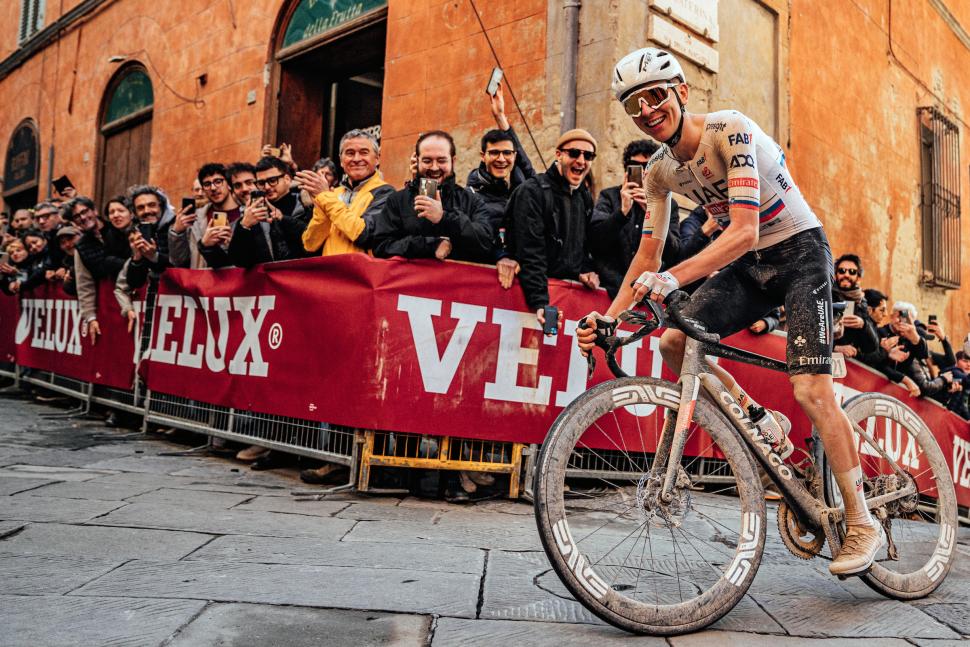

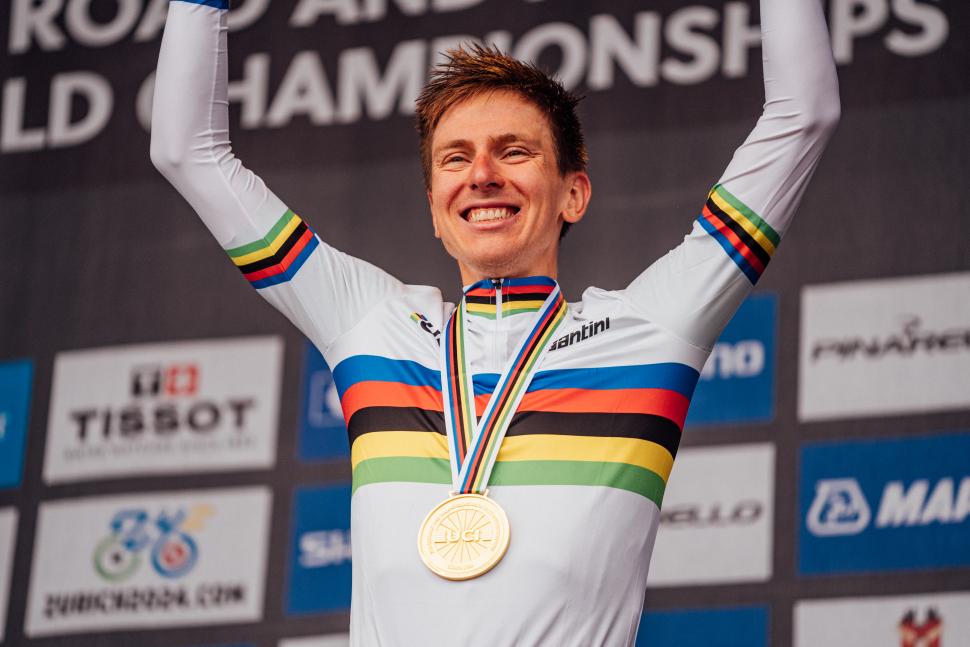
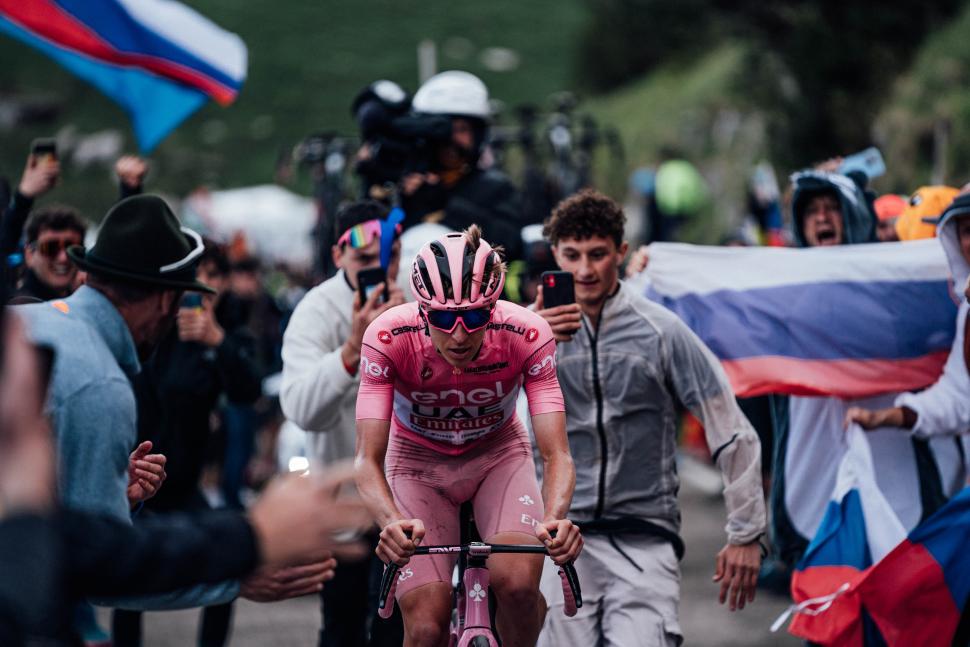
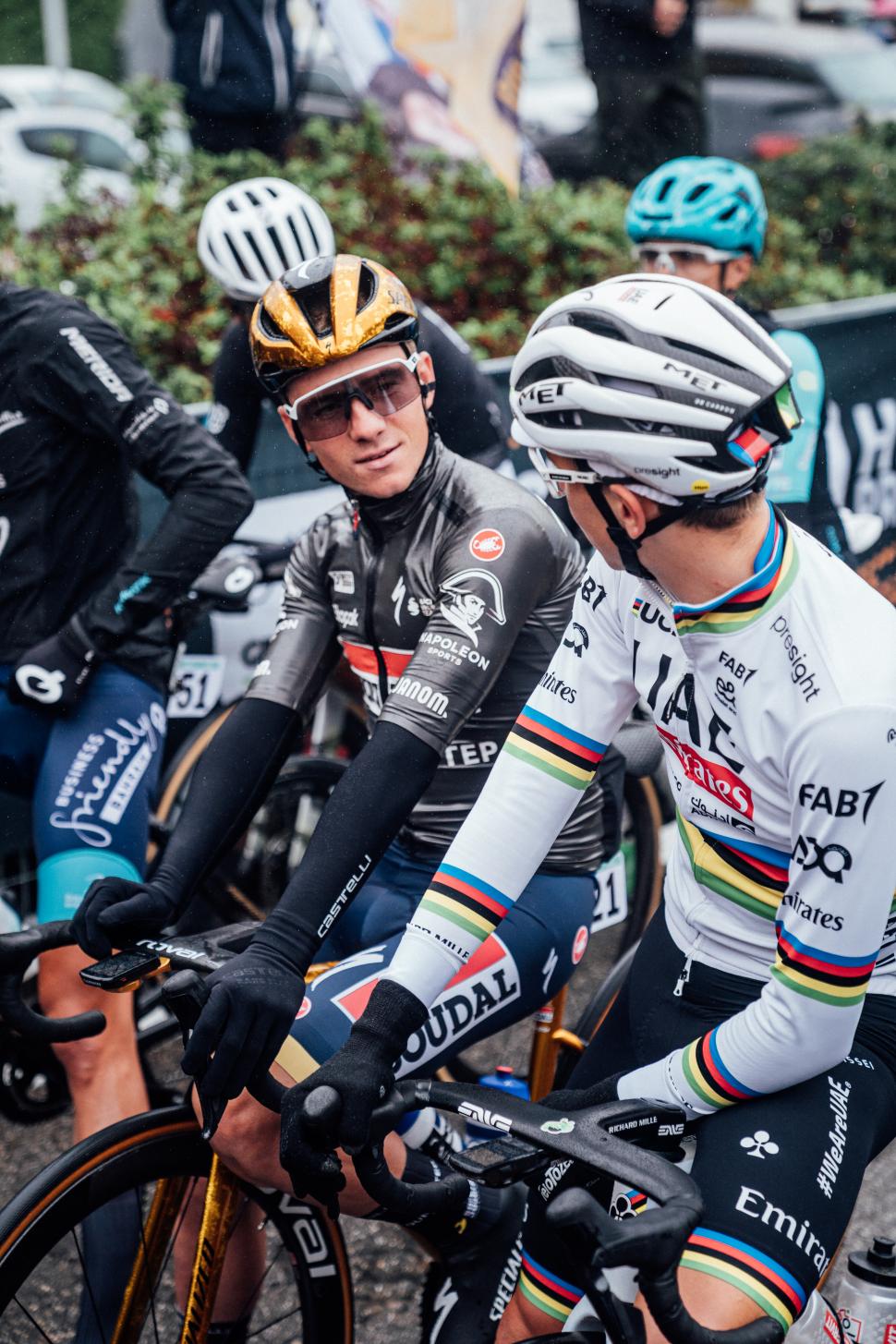
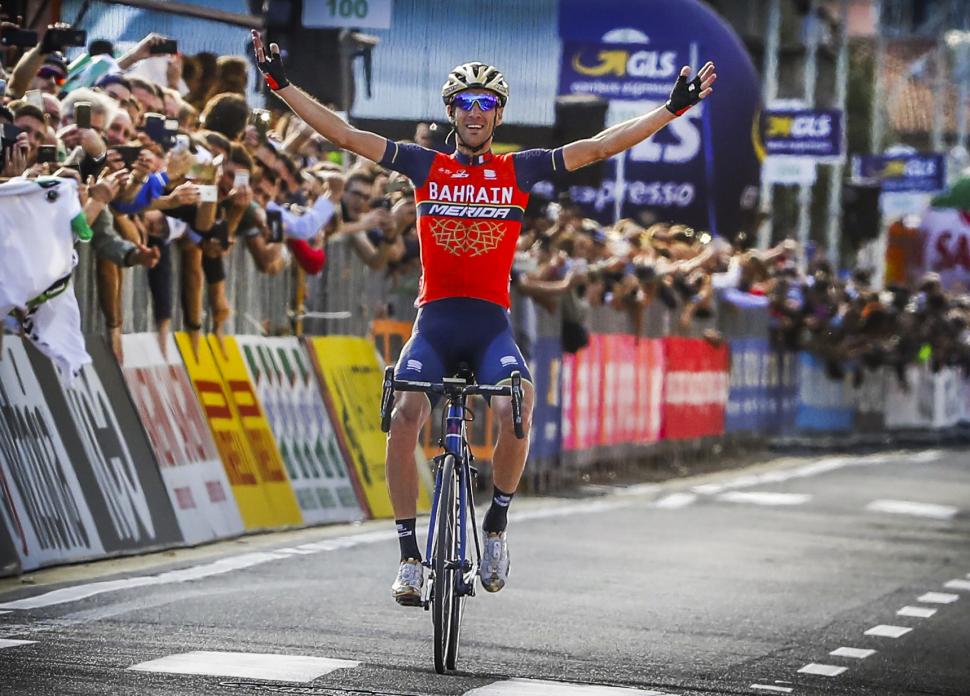
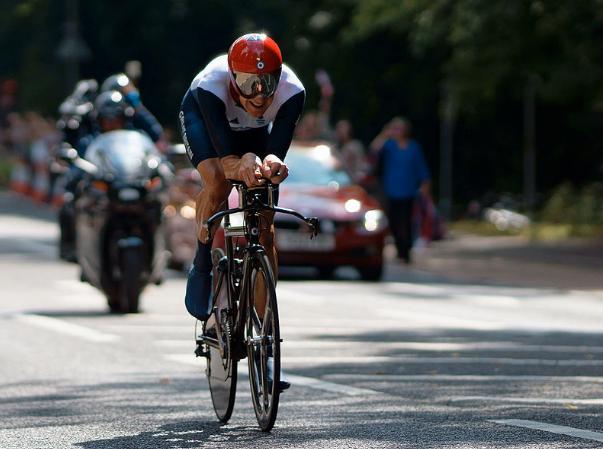
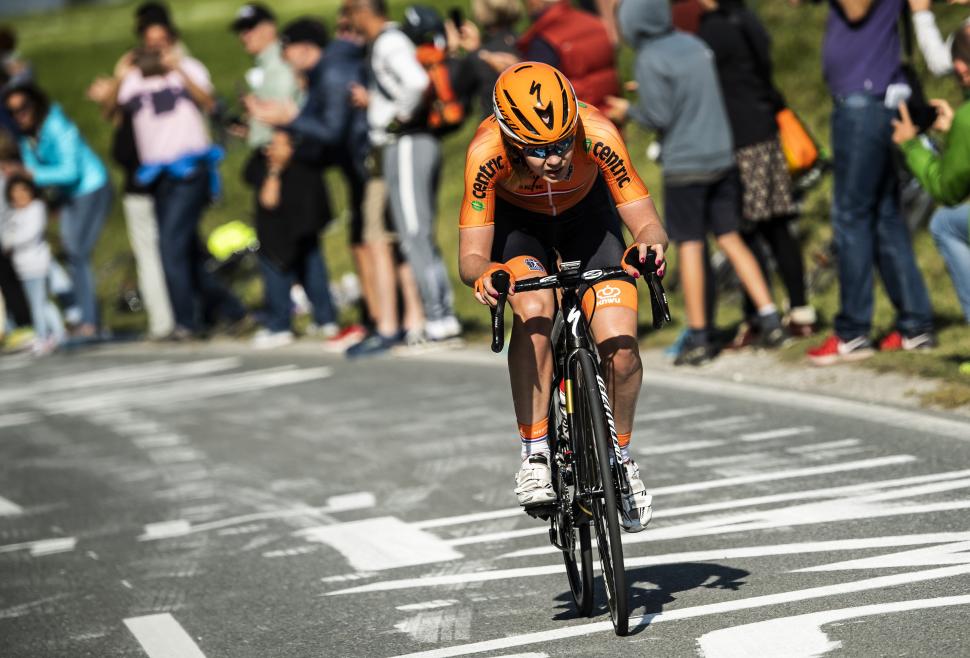
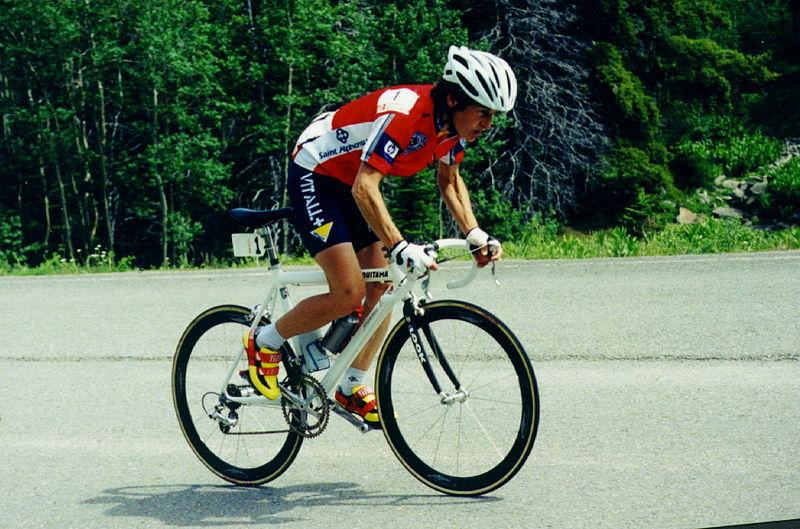
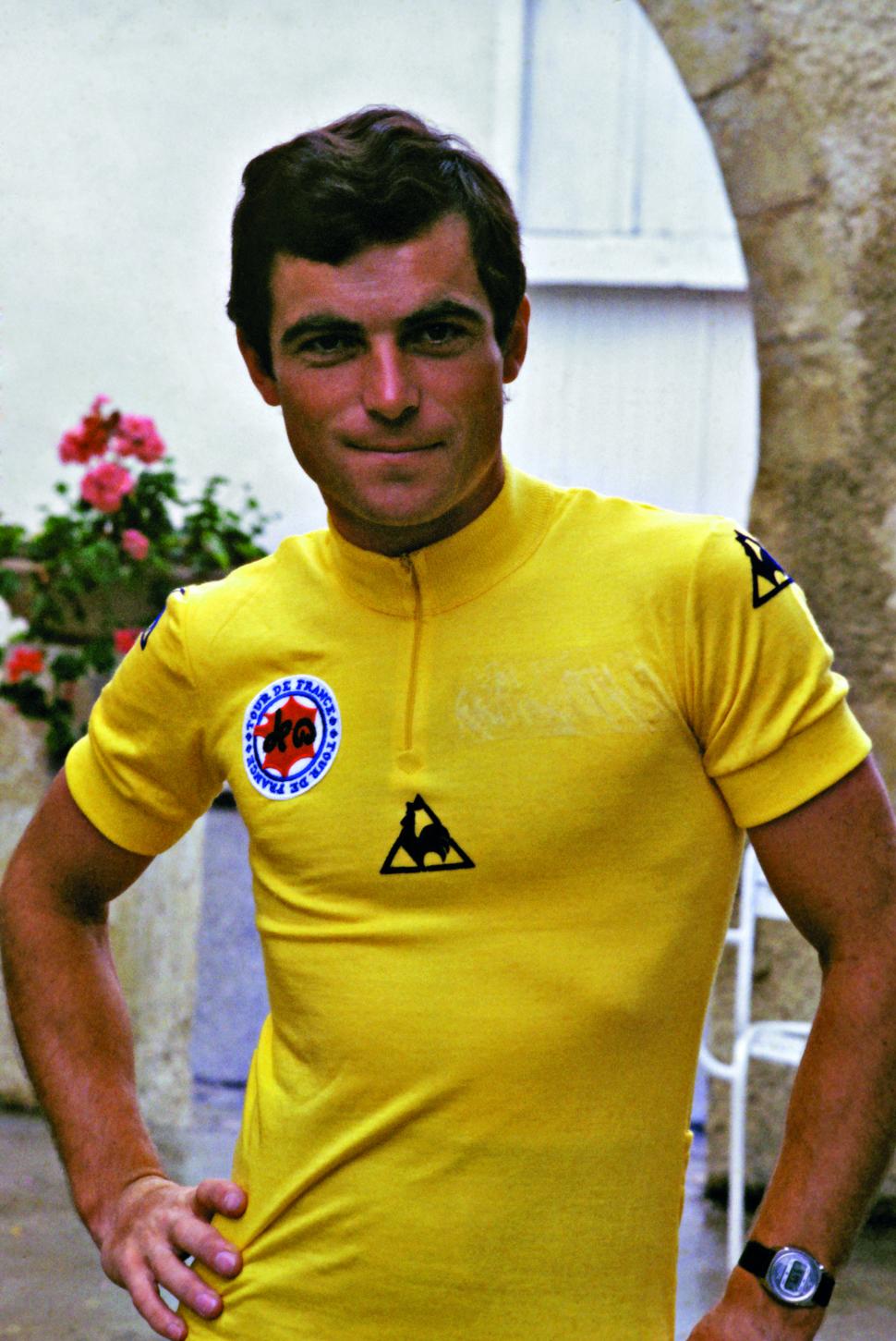
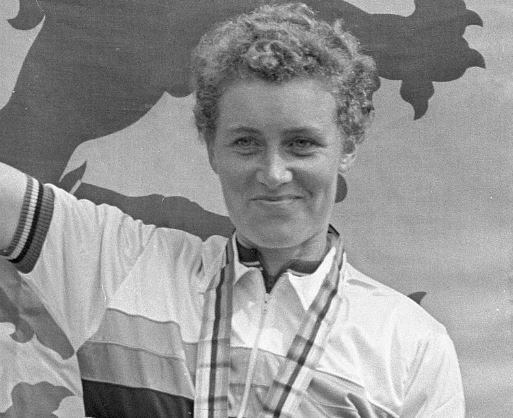
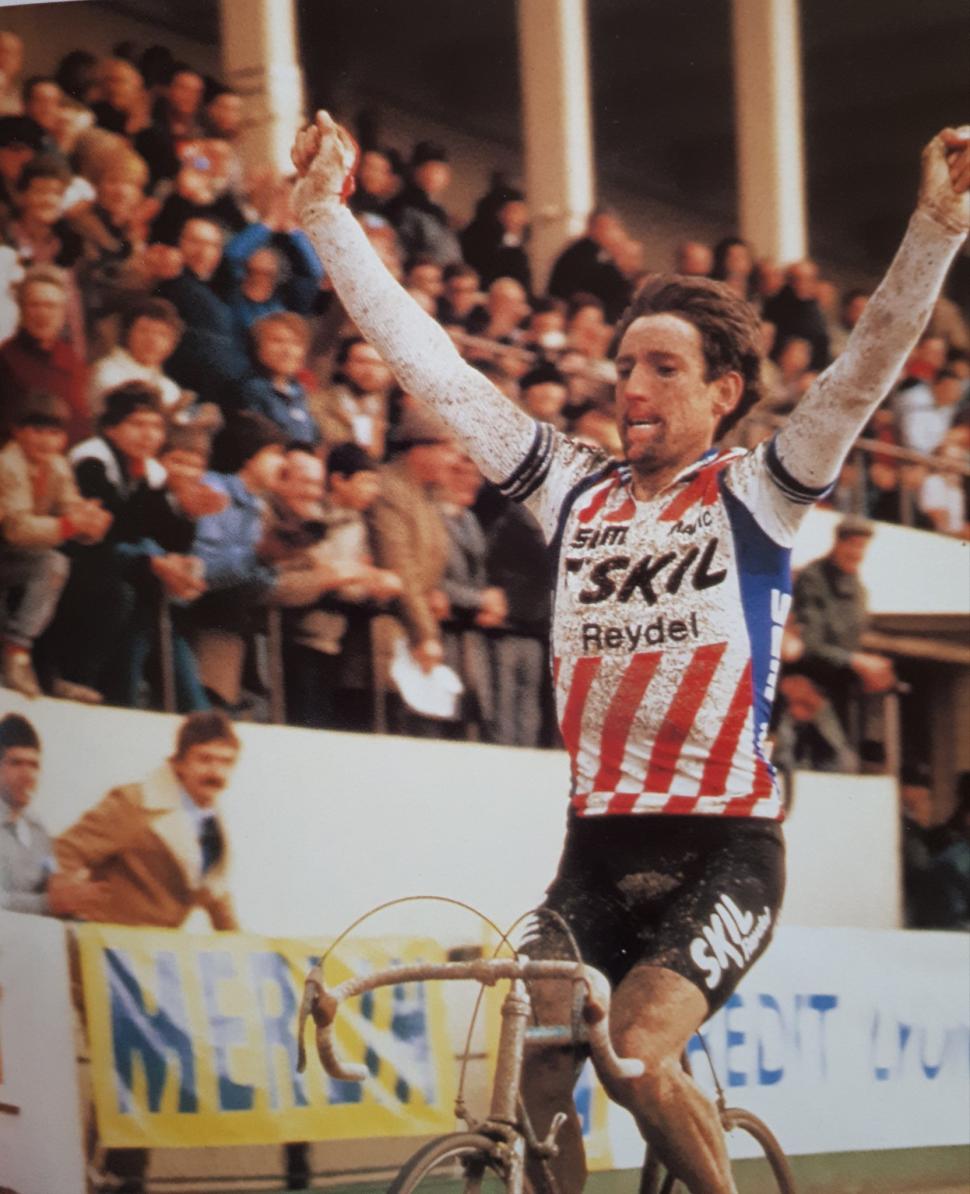
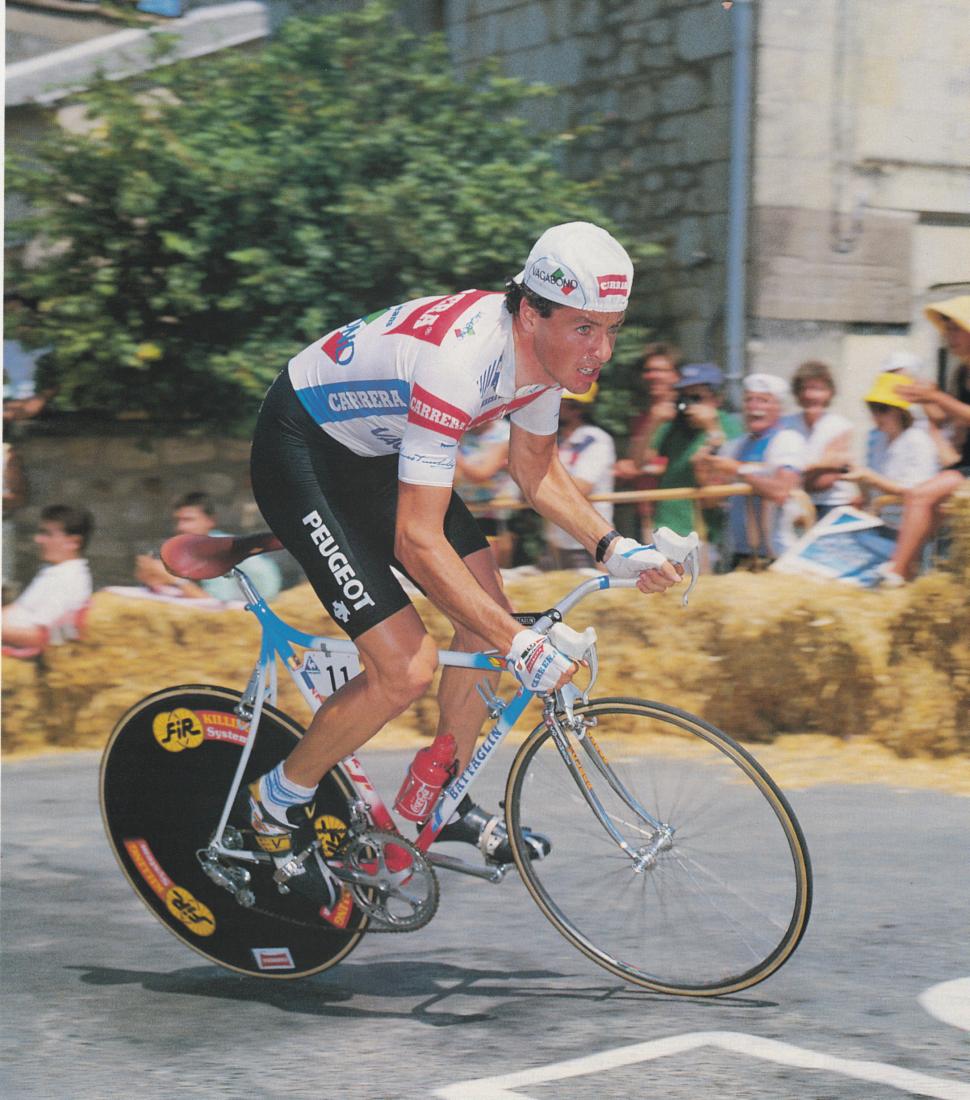
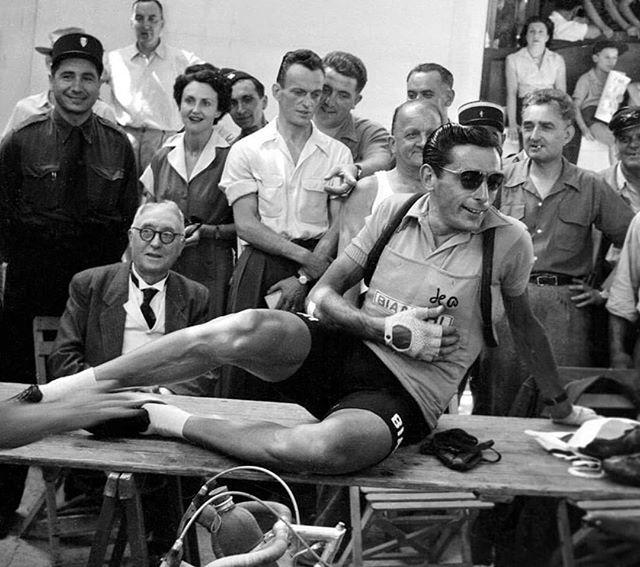

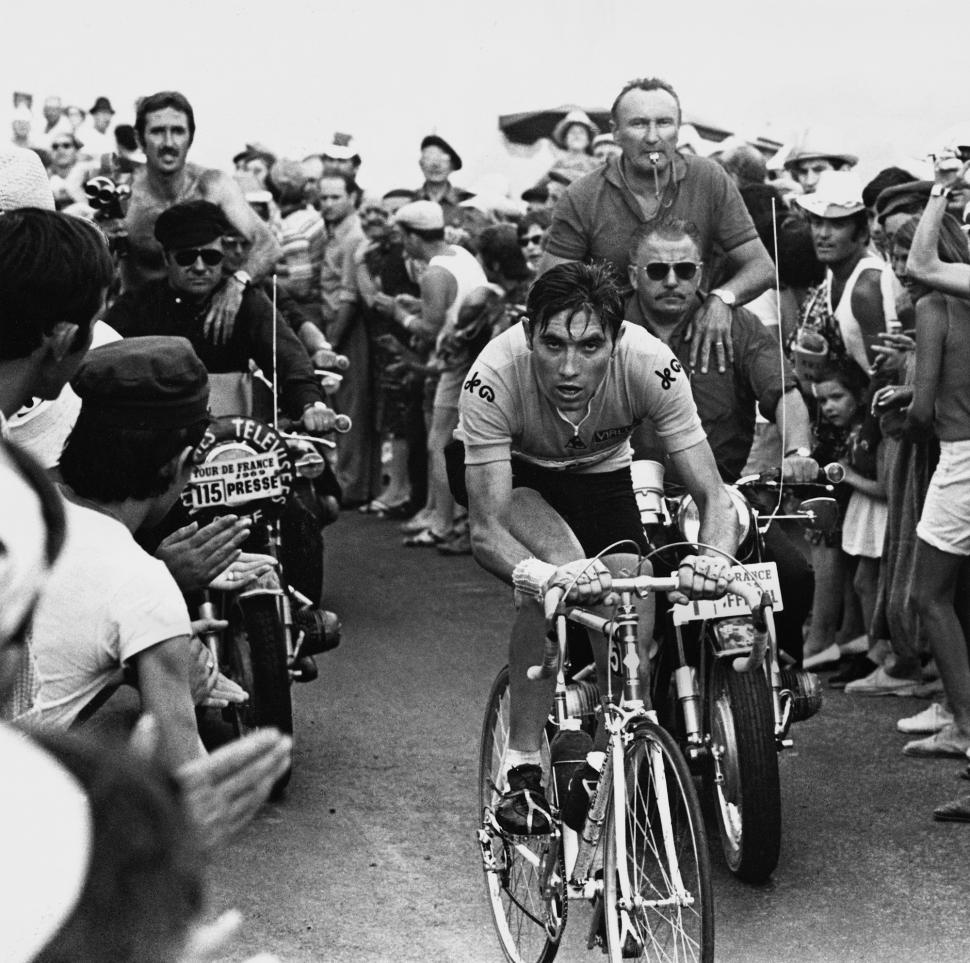
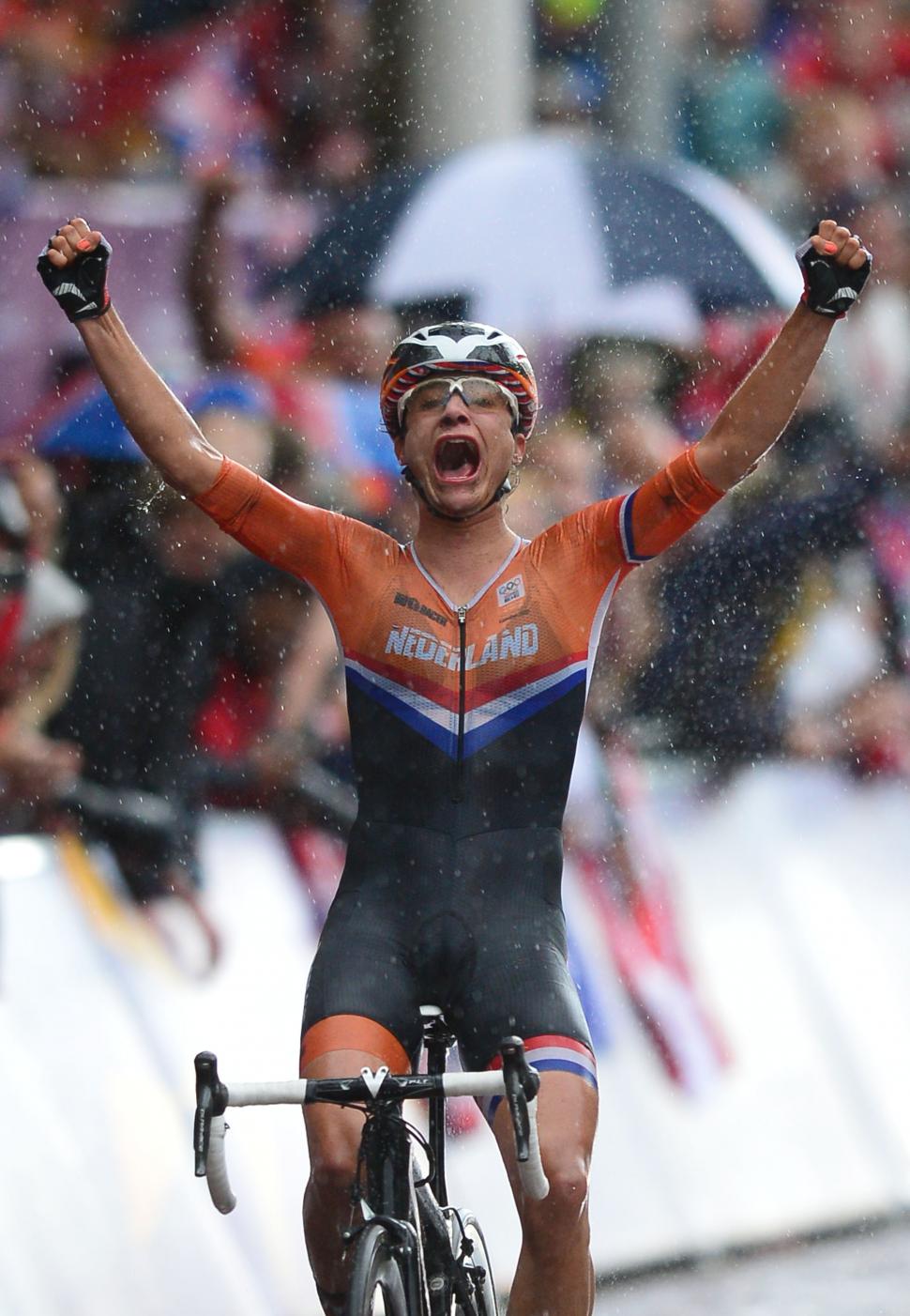
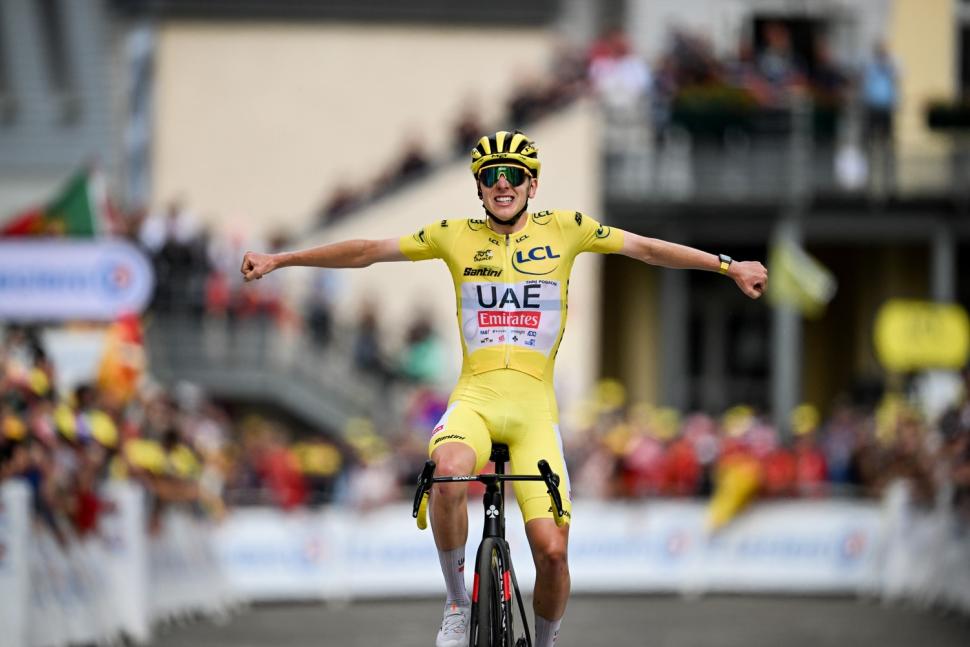
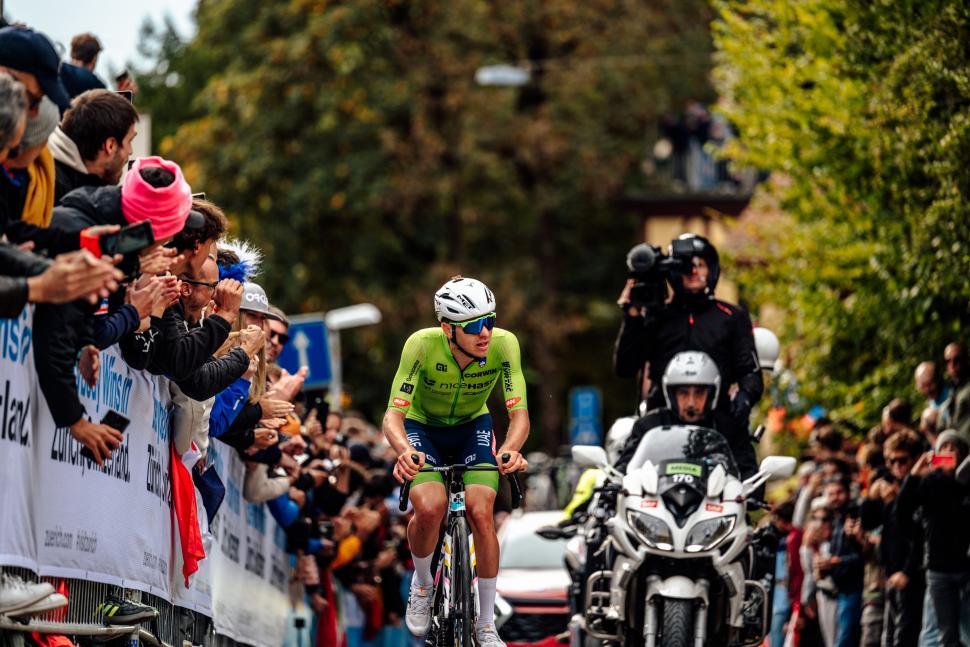
Add new comment
6 comments
Great to see so many women represented. Like most top of lists, being on it is the achievement.
Although I dont see wiggins getting into the top 12.
Nino Schurter - 2017; Won Cape Epic, won every XCO World Cup, and the World Championship.
I'm not sure how your rankings work. Annemiek won three grand tours and the Worlds in 2022 (and went on to win two more grand tours in 2023, giving her a string of five straight vistories).
How could anyone top that?
OK, can of worms opener here but none of those races that she won are classified as Grand Tours by the UCI, a Grand Tour is a race over more than 15 stages and usually 21. Although Van Vleuten's achievements are extraordinary they are over eight, ten and seven day stage races, they can't really be compared to winning successive 21 stage races, can they? Probably safe to say that if the Giro, Tour and Vuelta for men in 2024 had been an average of eight days each Pogacar would have entered and won all of them.
To save you having to work it out, Beryl Burton cycling 277.25 miles in 12 hours equates to an average speed of 37.18 km/h
Roche's 1987 was even more special because of what went before it.